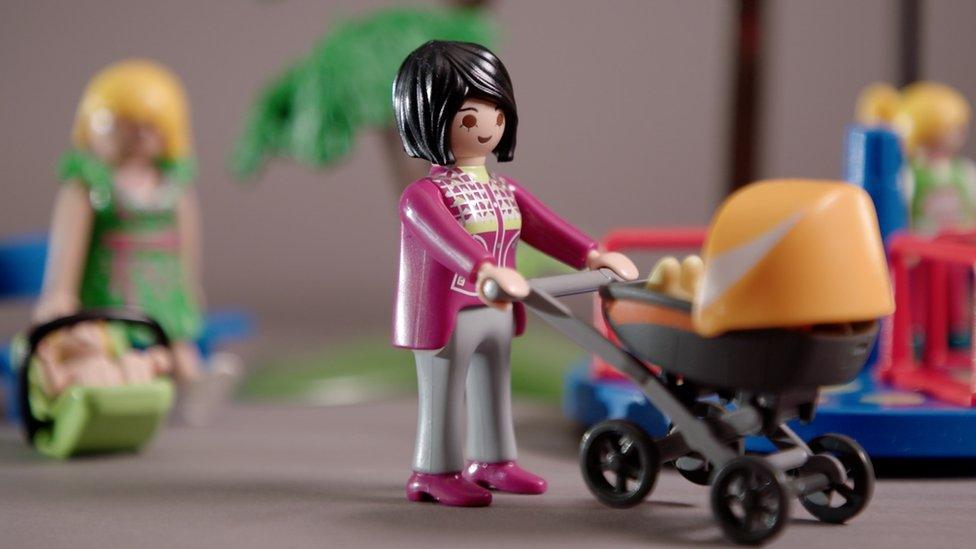I Am Hannah: Gemma Chan drama examines societal pressure on women
- Published
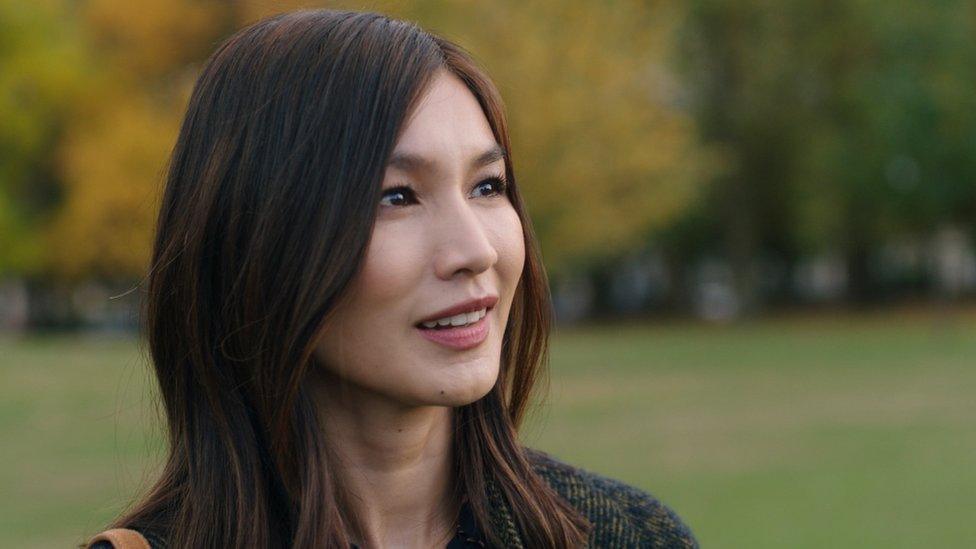
Gemma Chan plays the lead character in I Am Hannah, which airs next week
Pressure to have children can come from all kinds of places.
A parent who's impatient for grandkids. Friends who've recently had children themselves. Potential partners who ask on first dates what your plans are for the future.
But perhaps the biggest pressure is the one young people put on themselves.
The issue of being childless in your 30s is raised by Channel 4 drama I Am Hannah, starring Gemma Chan. It's one of a trilogy of powerful stand-alone female-led TV films which strive to focus on women's stories.
(The others are the previously broadcast I Am Nicola, starring Vicky McClure, and I Am Kirsty, with Samantha Morton.)
In I Am Hannah, 36-year-old Chan, best known for Humans and Crazy Rich Asians, plays a woman facing increased questioning about whether or not she plans to start a family.
The themes of the drama are likely to prompt viewers to consider their own circumstances and the pressures they feel.
"Society has developed only one social construct in which a woman could feel complete and whole, and that is by having children," says Tamara Lashchyk, author of Lose the Gum: A Survival Guide for Women on Wall Street.
"Any deviation from this is somehow perceived as a shortcoming in which a woman is made to feel inadequate. There are stigmas attached to childless women and this narrative is perpetuated by each generation that plays along."
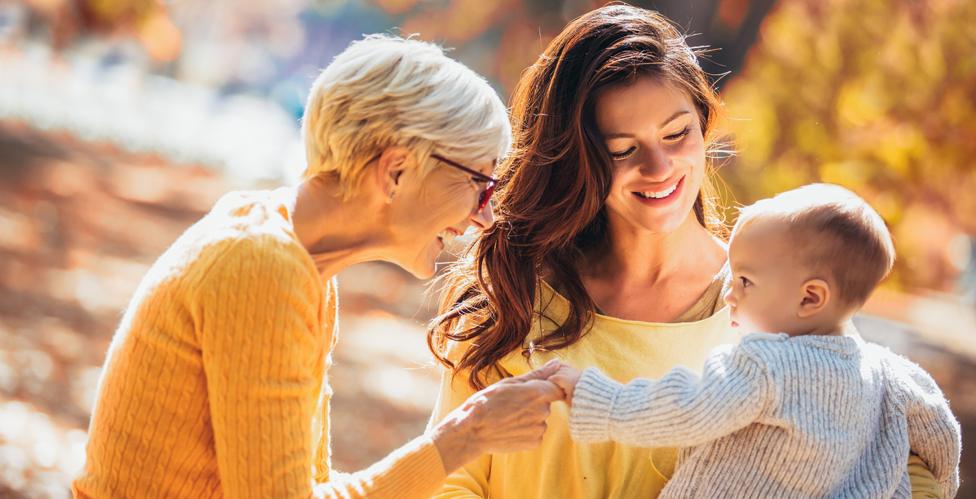
Women often feel pressure from their own mothers to start families
Speaking at the show's launch at Channel 4's London headquarters, Chan explains: "A lot of the stuff that comes up in this [drama] comes up in discussions that I've had with my girlfriends, my mum, my sister.
"I definitely have friends who've felt under similar pressures to what Hannah's going through. I wouldn't say my experience is completely her experience at all, there are a lot of differences, but it's definitely drawn from life."
Chan's character Hannah is seen meeting several men through dating apps, each with different priorities and views on children. She visits a GP to discuss options such as freezing her eggs. And she faces increased scrutiny from her mother about why she isn't yet starting a family. "One day, you're going to wake up and you'll be 40," she tells her.
"Mother and daughter relationships are unique and full of love but there can be a lot of angst there and often you want what's best for the other but it comes out in pressure," Chan says. "I think the pressures on Hannah are external pressure, but there are also a lot of internal expectations that Hannah puts on herself."
Earlier this year, behavioural expert Paul Dolan sparked a debate after speaking at the Hay Festival, external, where he suggested people are often happier without children or a spouse.
"Perhaps we do see [single people] as a threat to the hierarchies and presumed order in society," he later wrote in The Guardian., external "Or perhaps we are a bit jealous of them having apparently freed themselves from social convention. Or it might be that we cannot resist making comparisons with our own lives when we hear about how happy other people are."
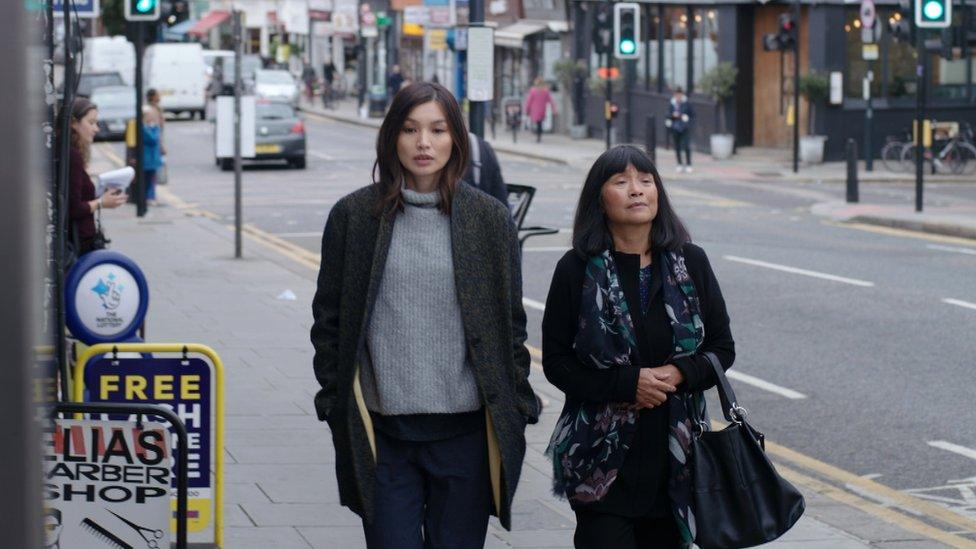
Hannah's mother is seen regularly pressuring her to have children
While many young people are actively aware and regularly reminded of the issue, not all pressure is quite so direct. Lashchyk points out it can sometimes be subtle and unintended.
"When friends in your social circle begin to have children and you don't, this can lead them to alienate the childless couple, which isn't always intentional," she explains. "Generally, couples with children have more in common with other couples who also have kids and often they prefer to socialise with each other.
"Families also add pressure on women to have children as it falls in line with the natural order of our own evolution. Most people are programmed to think a certain way and they seldom make room for introspection or empathy. They can't fathom the idea that a woman would ever choose a life where she is husbandless or childless."
Chan doesn't necessarily feel that I Am Hannah will change people's behaviour, but she says it may well prompt some to reflect on whether they should reconsider their questioning.
"I think it's interesting that women do get asked a lot about what their plans are - are they going to have kids, do they plan to get pregnant - perhaps more so than men get asked," she says. "And to a certain extent I do think that that is someone else's business and we shouldn't be necessarily asking them that."
Many of Chan's previous roles have been more detached from real life - whether playing Doctor Minerva in the Marvel films or a synthetic robot in Humans. I Am Hannah, on the other hand, had a much more visceral and realistic feel to it, she explains.
"We shot this in the autumn last year, and by the end of filming I felt like I'd lost a layer of skin. All my nerves were on the outside and I went and did something else and tried to forget about it.
"Watching it, it felt very new. I almost didn't remember a lot of the things that we'd done, and it felt very exposing really. But watching it again now, I was able to engage with it more objectively."
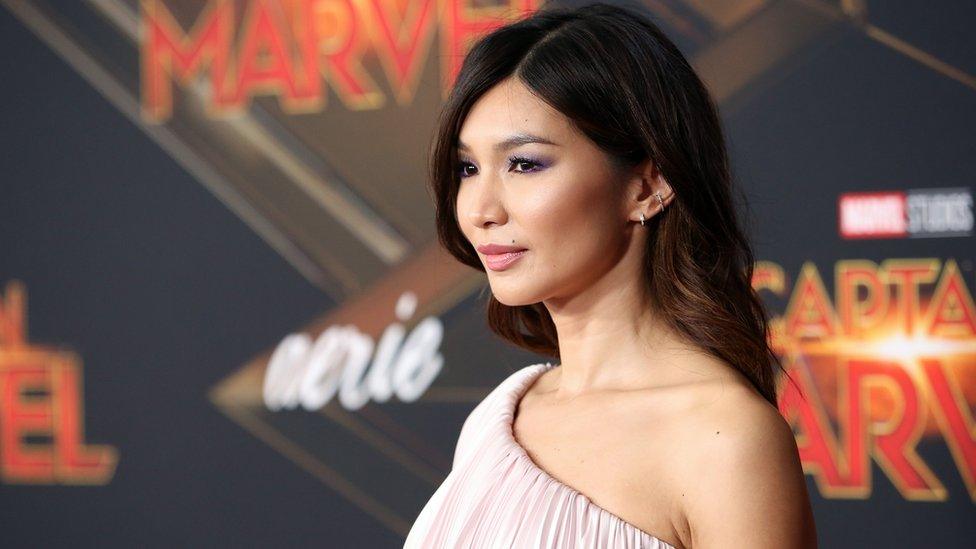
Chan has previously starred in Humans and Crazy Rich Asians
Unusually, Chan is given a story writing credit on I Am Hannah, in addition to an acting credit. She was actively involved in developing the plot, and tweaks were taking place during filming last autumn.
"It's rare to be given that creative freedom," she says. "As an actor you're normally serving someone else's vision, so it was a completely different experience to go 'OK, what story do I want to tell?'
So, should people be more tactful when automatically asking young people whether they plan to have children?
"Probably, because this may be an area of sensitivity for some women," says Lashchyk. "I do however think that if a woman is self-assured and has made the life choice to forgo having children, she is probably confident enough to withstand those comments.
"I personally do not take offence, and understand that people are often insensitive and comments without tact are a mere reflection of someone's inability to consider a life different from their own."
I Am Hannah is on Channel 4 on Tuesday 6 August at 22:00 BST.

Follow us on Facebook, external, or on Twitter @BBCNewsEnts, external. If you have a story suggestion email entertainment.news@bbc.co.uk, external.
- Published16 May 2018
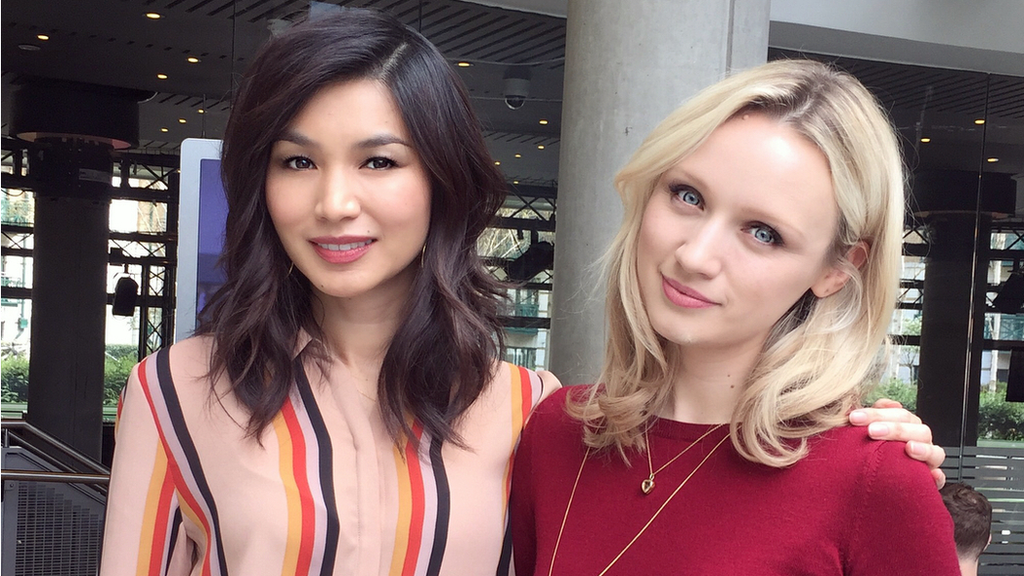
- Published25 October 2013
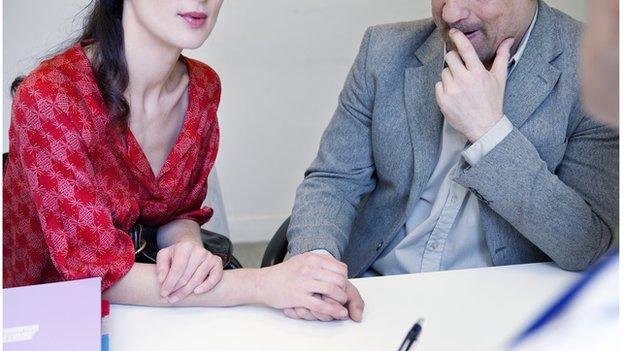
- Published3 April 2018
